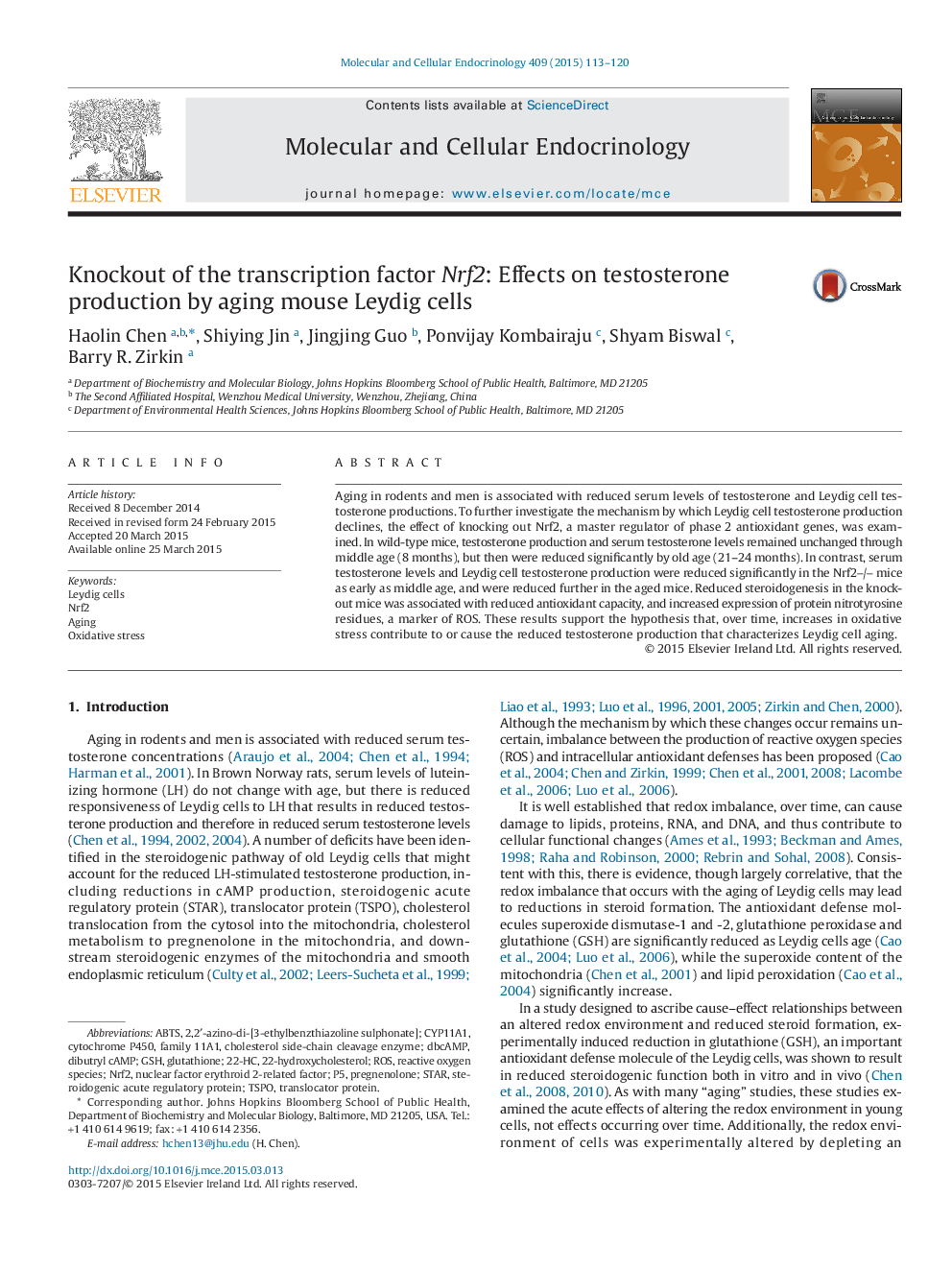| Article ID | Journal | Published Year | Pages | File Type |
|---|---|---|---|---|
| 2195796 | Molecular and Cellular Endocrinology | 2015 | 8 Pages |
•Nrf2 knockout accelerated age-related reductions in Leydig cell steroidogenesis.•Nrf2 knockout significantly reduced the antioxidant capacity of the testis.•Nrf2 knockout resulted in significantly increased ROS.•Increased oxidative stress contributes to reduced testosterone production with age.
Aging in rodents and men is associated with reduced serum levels of testosterone and Leydig cell testosterone productions. To further investigate the mechanism by which Leydig cell testosterone production declines, the effect of knocking out Nrf2, a master regulator of phase 2 antioxidant genes, was examined. In wild-type mice, testosterone production and serum testosterone levels remained unchanged through middle age (8 months), but then were reduced significantly by old age (21–24 months). In contrast, serum testosterone levels and Leydig cell testosterone production were reduced significantly in the Nrf2−/− mice as early as middle age, and were reduced further in the aged mice. Reduced steroidogenesis in the knockout mice was associated with reduced antioxidant capacity, and increased expression of protein nitrotyrosine residues, a marker of ROS. These results support the hypothesis that, over time, increases in oxidative stress contribute to or cause the reduced testosterone production that characterizes Leydig cell aging.
